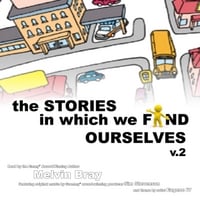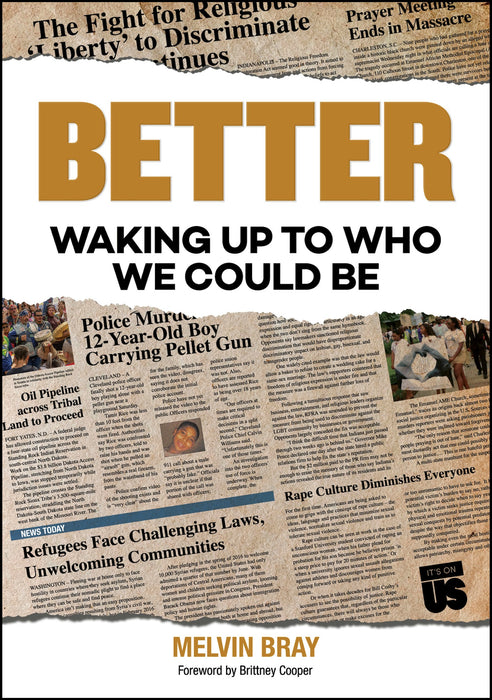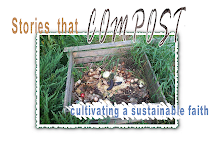The Pursuit of Respectability—Episode 2
(from Ezra, Nehemiah and Isaiah 56—a story of inauguration)
One would think that the vehement exclusion of one group—foreigners—for the sake of increased respectability would be enough, but as is often the case with this kind of thing, respectability is seldom satisfied with the exclusion of just one group of 'outsiders.' To do it once is to become addicted. It didn't take long before the ever more respectable Israelite insiders had compiled for themselves a growing list of outsiders to pick on: foreigners, Israelites married to people of foreign descent, the children of mixed marriages (all of whom coincidentally were longtime residents of the land these returnees from Babylon were trying to reclaim) had to go; those without land, women, children born out of wedlock, eunuchs (sexual minorities), weren't banished but were afforded few or no political rights. Only the most respectable could have full rights in the temple assembly. Only they could retain God's favor. At least that's what Nehemiah, Ezra and those most like them had come to believe.
Not everyone agreedwith Nehemiah and Ezra. Among what was left of the tradition of the school of the prophets from Elijah and Elisha's time, there was strong dissent. It came from those who had been disciples of the prophet Isaiah, whose writings now make up the third movement of the Book of Isaiah in the Bible. In the great tradition of their teacher who had stood boldly against the excesses of Israel's leaders before seeing them carried off into Babylonian captivity, these students now spoke out with poetic potency against the excesses of the ever so respectable elite who had returned from Babylon:
"Thus says the Lord:
Maintain justice, and do what is right,
for soon my salvation will come,
and my deliverance be revealed.
"Happy is the mortal who does this,
the one who holds it fast,
who keeps the sabbath, not profaning it,
and refrains from doing any evil.
"Do not let the foreigner joined to the Lord say,
‘The Lord will surely separate me from his people’;
and do not let the eunuch say,
‘I am just a dry tree.’
For thus says the Lord:
To the eunuchs who keep my sabbaths,
who choose the things that please me
and hold fast my covenant,
I will give, in my house and within my walls,
a monument and a name
better than sons and daughters;
I will give them an everlasting name
that shall not be cut off.
"And the foreigners who join themselves to the Lord,
to minister to him, to love the name of the Lord,
and to be his servants,
all who keep the sabbath, and do not profane it,
and hold fast my covenant—
these I will bring to my holy mountain,
and make them joyful in my house of prayer;
their burnt-offerings and their sacrifices
will be accepted on my altar;
for my house shall be called a house of prayer
for all peoples.
Thus says the Lord God,
who gathers the outcasts of Israel,
I will gather others to them
besides those already gathered." (Isaiah 56:1-8)
It was a gracious yet pointed rebuke. These disciple prophets, who are commonly collectively referred to as Third Isaiah, proclaimed their message in the streets of Jerusalem and throughout the Palestinian countryside. They also wrote it down allowing the scribal and priestly classes to refer back to it. They start by acknowledging how just Ezra and Nehemiah's initial reforms, the Sabbath reforms, were. In doing so, they save us from the temptation of labeling those we disagree with as evil. Third Isaiah also makes it clear that what God favors is justice, not cultural respectability. They define justice as keeping Sabbath and turning away from evil. In appealing to Sabbath practice, the prophet is invoking the heart of the ethical tradition of scripture. To keep Sabbath is to return thanks to God, but not in word alone. It involves making sure everyone has enough and no one has too much. In so doing, one celebrates the gifts of the Creator by keeping them circulating rather than concentrating (Exodus 16:16-19). Sabbath also involves weeding out poverty wherever it takes root by periodically releasing those who groan under the burden of debt (Deut 15) and by allowing the poor to glean the fields of the wealthy free of charge (Ex 23:10-12). At length, Sabbath is a refusal to allow a system of slavery to ever take hold among a people liberated from Pharaoh, by putting limits on work, on accumulation and on privilege.
When deeply embraced, Sabbath practice eventually subverts any prejudices one may secretly harbor. So as for this business of excluding 'outsiders' from God's favor, Third Isaiah sees it ultimately incongruent with a Sabbath ethic. 'Let not the foreigner say… Let not the eunuch say… For this is what God says…!' And God's promises are so inclusive, so embracing, so opposite the exclusion that the ever more respectable elites of Israel had drifted towards. Whereas the respectable kept drawing smaller and smaller circles of who were really in God's favor, Third Isaiah paints a picture of a God who keeps redrawing the circles wider and wider, so that they could eventually include you and me. How beautiful is that?
Third Isaiah's message from God excited some and dismayed others. The people debated it for a while, but sad to say, Third Isaiah's vision of a radically inclusive Israel was rejected by the ever more respectable who finally reestablish political control over Israel. These gentry who had returned from Babylon eventually pushed the peasants and foreigners off the most fertile land. They allowed the gap between the rich and the desperately poor to mount. They excluded all but those who were most like themselves from having a public voice in the future of the nation. And how much favor did their pursuit of respectability curry with God? Never again in the biblical narrative is Israel completely free of some type of foreign occupation.
And what, you may wonder, happened to the rejected message of Third Isaiah? Four and a half centuries later, a young Jesus of Nazareth preaching his first sermon dusted off an Isaiah scroll one day in synagogue and began reading from the heart of Third Isaiah's message. And when he was done, he added: “Today this scripture has been fulfilled in your hearing” (Luke 4:21). The struggle for inclusive justice, against an exclusive respectability, had begun anew. Indeed, it is not overstating the case to say that Jesus may have staked his entire ministry on the vision of Third Isaiah. Not only is Third Isaiah invoked in Jesus’ inaugural sermon at Nazareth, but also at the culmination of his struggle with the public authorities (the Ezras and Nehemiahs of his day) in the Jerusalem Temple. In the midst of his dramatic 'cleansing' of the temple courtyard Jesus quotes directly from Third Isaiah's first poem of protest against Israel's elites, "My house shall be called a house of prayer for all peoples" (Lk 19:46 = Is 56:8).
So much for respectability. Ezra and Nehemiah assure us that even the most respectable can do wrong in the name of God at times.
*Episode 2 is in substantial part a paraphrase of the writings of Ched Myers.










No comments:
Post a Comment